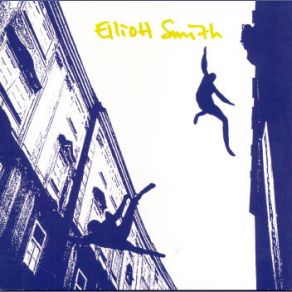Elliott Smith
Download links and information about Elliott Smith by Elliott Smith. This album was released in 1995 and it belongs to Rock, Indie Rock, Pop, Alternative, Songwriter/Lyricist genres. It contains 12 tracks with total duration of 37:17 minutes.

|
|
|---|---|
| Artist: | Elliott Smith |
| Release date: | 1995 |
| Genre: | Rock, Indie Rock, Pop, Alternative, Songwriter/Lyricist |
| Tracks: | 12 |
| Duration: | 37:17 |
| Buy it NOW at: | |
| Buy on iTunes $9.99 | |
| Buy on Amazon $8.99 | |
| Buy on Amazon $12.98 | |
| Buy on iTunes $9.99 | |
| Buy on Songswave €1.05 | |
Tracks
[Edit]| No. | Title | Length |
|---|---|---|
| 1. | Needle In the Hay | 4:16 |
| 2. | Christian Brothers | 4:30 |
| 3. | Clementine | 2:46 |
| 4. | Southern Belle | 3:06 |
| 5. | Single File | 2:26 |
| 6. | Coming Up Roses | 3:10 |
| 7. | Satellite | 2:25 |
| 8. | Alphabet Town | 4:11 |
| 9. | St. Ides Heaven | 3:00 |
| 10. | Good to Go | 2:24 |
| 11. | The White Lady Loves You More | 2:24 |
| 12. | The Biggest Lie | 2:39 |
Details
[Edit]Elliott Smith's self-titled second album was his first for the Kill Rock Stars label and also his first major artistic statement. Its sound is fairly similar to that of Roman Candle — it's mostly just Smith and his gently fingerpicked acoustic guitar, embellished a bit more often with drums, harmony vocals, and the odd additional instrument. The main difference here is that Smith's melodies and lyrics reveal their greater strength and substance with repeated listens. And make no mistake, the songs do require repeated listens — not just because of Smith's often whispery, spiderweb-thin delivery, but also because of his deceptively angular melodies and chord progressions, which threaten to float away until the listener hears them enough to latch on and know where they're going. Smith is often compared to Paul Simon or the Beatles in their softer moments, but perhaps the best touchstone for this early sound is Nick Drake's even more minimalistic Pink Moon; while Smith's language is rawer and tougher than Drake's haunting poetics, his songs also deal with depression and loneliness, creating an almost uncomfortable intimacy with their bare-bones arrangements. The quiet prettiness of Smith's sound can make it easy to overlook the darker, edgier side of his songs — many of Smith's embittered characters cope with their dysfunctional relationships or breakups through substance abuse, while some of the lyrics read more like angry, defiant punk rants when separated from the music. Smith would flesh out his sound with the albums to come, but Elliott Smith contains the blueprint for his later successes, and more importantly, it's a fully realized work itself.